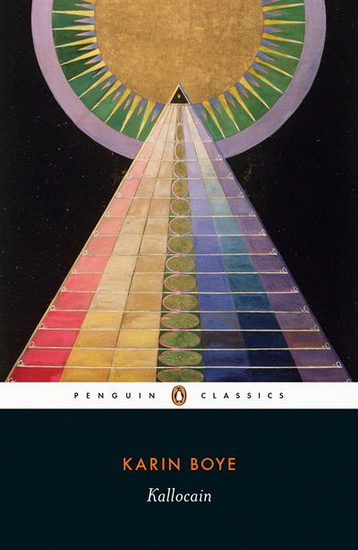


Kall expects his discovery will be his triumph, his great gift for the common good. How then could these thoughts and feelings belong to the individual? Doesn’t the whole fellow-soldier belong to the state? To whom should his thoughts and feelings belong then, if not to the state?” As a good citizen, he is convinced that each person (including his or her thoughts) belong to the government: “from thoughts and feelings, words and actions are born. The choice is that simple: be regulated and controlled-or die.Īt the beginning, Kall doesn’t see his drug as a violation of others’ privacy. He develops Kallocain, a truth serum that exposes the private thoughts of all “fellow-soldiers,” thus paving the way for the Worldstate to make sure that either each person becomes a “happy, healthy cell in the state organism,” or he/she is eliminated. In a society defined by distrust and suspicion, he knows that surveillance is all important therefore, Kall plans to prove his worth to the Worldstate by revolutionizing the way the government can spy on its people. Leo Kall starts out as a scientist and a true believer. In Boye’s novel, citizens are equal, it’s true, but only in so far as they are equal cogs in the machine of the repressive, male-dominated Worldstate. The novel is all the more powerful and poignant when one realizes that the author committed suicide shortly after its publication. In the world Boye extrapolates from her own time and projects into Kallocain, the individual cannot survive. Readers can read a Swedish fear of Nazi invasion in between the lines, but the novel also clearly reflects the disillusionment Boye felt-as someone who once had considered herself a socialist-with the suffocating oppression of the Soviet Union. One of the 76-year-old works that now is a finalist for the 1941 Retro Hugo for Best Novel is every bit as relevant today as it was when published in 1940.Īnyone who is interested in the literature of liberty should read Swedish author Karin Boye’s Kallocain.īoye (1900-1941) wrote Kallocain as totalitarian state battled totalitarian state during World War II.


On April 25, 2016, organizers of MidAmericon II/The 74 th World Science Fiction Convention announced the finalists for this year’s Hugo Awards, one of the most prestigious accolades in the global science fiction community.Īlso announced were the finalists for the 1941 Retro Hugo Awards which will honor works that should have been recognized in 1941 but weren’t, because the events of World War II made a meeting of the World Science Fiction Convention impossible.


 0 kommentar(er)
0 kommentar(er)
